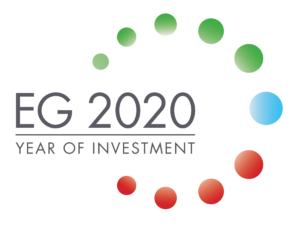 Though the COVID-19 pandemic has posed a lot of challenges to countries on the continent to meeting their set targets for 2020, the Ministry of Mines and Hydrocarbons in Equatorial Guinea is not slowing down as it has signed the country’s first set of mining contracts with three international companies for the exploration of mineral resources in the Rio Muni region.
Though the COVID-19 pandemic has posed a lot of challenges to countries on the continent to meeting their set targets for 2020, the Ministry of Mines and Hydrocarbons in Equatorial Guinea is not slowing down as it has signed the country’s first set of mining contracts with three international companies for the exploration of mineral resources in the Rio Muni region.
The government of Equatorial Guinea has tagged the year 2020 as, “A year of energy-focused deal-making centred on driving investment in Equatorial Guinea and Africa’s leading oil and coal-producing economies.” According to the government, “building on the success of Equatorial Guinea’s 2019 Year of Energy initiative that positioned the country as the energy and investment capital of the continent, the Ministry of Mines and Hydrocarbons is continuing its outreach to global investors through its Year of Investment 2020.”
An excerpt from (investing.com) read: “The first contract, awarded to Manhattan Mining Investment Co., provides for gold exploration in Block (I). Three prospecting contracts were awarded to Blue Magnolia in Block (B) for the exploration of bauxite and precious metals; Block (K) for gold; and Block (H) for gold, uranium, iron, bauxite, basic metals and rare earth minerals. Lastly, one prospecting contract was awarded to Shefagold in Blocks (N) and (O) for platinum, palladium, silver, chrome, copper, magnesium, phosphorus, iron ore and related minerals.”
The signing of the agreement was done on Monday, 18th May, 2020 and it follows the country’s first international Mining tender, EG Ronda 2019. The country opened its mining sector to the private sector for the first time last year. It aims to attract ‘a new wave of investment’ by allowing for exploration activities from both local and foreign companies to the Rio Muni basin.
This comes after a Frontier Mineral Exploration Contract with RosGeo was signed earlier this month. These are welcome initiatives by the government of Equatorial Guinea through the Ministry of Mines and Hydrocarbons. This is a time when a lot of oil-producing African countries are suffering from their lack of diversification from the oil sector. With a constant pace in a clear direction as this, the country is on the path to being foreign investors’ top destination in coming years, which will create more jobs, increase the revenue of the country and position it strategically on the continent’s, and even the world’s map.